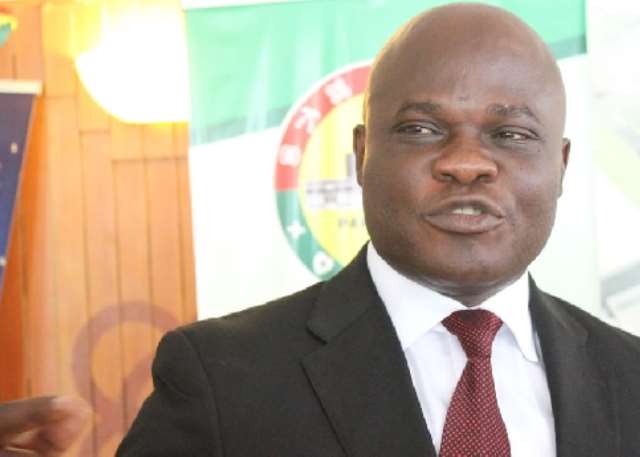Medical doctors who refuse postings to deprived areas will be removed from the government’s payroll system, the Ministry of Health has announced.
The Minister of Health, Kwabena Mintah Akandoh, disclosed during a working visit to the University of Ghana Medical School last week. He noted that a validation exercise will begin this month to identify and filter out medical doctors who have ignored their duty posts.
According to the Minister, individuals who express interest in serving in those areas will be posted accordingly. “By the end of February, we will do validation. If you have not reported, your name will be taken off the payroll and the slots will be opened for those who are willing to go,” he stated.
Earlier this month, the Minister rejected claims that newly deployed doctors are being punished through postings to rural districts. He explained that such deployments are necessary to ensure equitable access to healthcare across the country.
“Since I took office as Minister responsible for the health sector, I have indicated that no health professional should see going to serve in rural areas as a punishment. For me, in my humble opinion, it’s a call to duty,” he said, during a working visit to the Oti Region.
The minister revealed during the visit that although 25 medical doctors were posted to Oti in 2025, only two have so far reported for duty.
Nonetheless, the Health Minister has emphasized that, the Ministry of Health will not change postings outside the approved process, stressing that doctors must serve where vacancies exist.
“We are not going to change anybody’s posting. If you have been posted to Oti, you will go to Oti. That is where the government has a vacancy, and that is where you will go,” Mr Akandoh stated. Mr Akandoh also raised concerns about health data from the region, noting that Oti remains one of the most deprived areas in terms of key health indicators.
During the visit, he inspected the proposed site for the construction of the Oti Regional Hospital and disclosed that the government has made budgetary provision for the construction of three new regional hospitals in 2026.
“In the 2026 budget, the government has made provision for the construction of three regional hospitals, Oti Region, Savannah Region, and Western North Region,” he said.
According to the minister, Oti is among the first regions where construction will commence, subject to the completion of all land documentation and the resolution of any litigation issues.
“The processes will start when we have full documentation on the land, devoid of litigation. If you bring your documents tomorrow, you start your processes the next day. If you delay it, it’s your own issue,” he added.
Mr Andoh has therefore called on Stakeholders, “A Member of Parliament, a Regional Minister, whoever you are, we must all put our heads together to find the solution.”
In early November 2025, the Health Ministry announced the allocation of doctors nationwide, with about 80% earmarked for district health facilities.
Fast forward to November 5, Health Minister Kwabena Mintah Akandoh revealed that his outfit was processing about 700 junior medical doctors for posting.
According to the statutes of the Ghana Health Service (GHS), newly posted medical officers are generally expected to report to their assigned health facility within two weeks of receiving their posting letter.
However, a recent report dated November 28 released by the health authority shows that about 70% of the newly posted doctors have yet to report to their new posts.
An overwhelming 305 doctors, or 66%, have still not shown up. This means that 7 out of 10 doctors failed to report to their assigned regions.
According to the data, urban facilities in Greater Accra and Kumasi, as well as the Eastern region, are recording the highest turnout, with many doctors reporting to their posts, representing over 60% of the total turnout, to the neglect of rural centres. Several health centres in rural areas still wait in hopes of the appearance of medical officers deployed to their districts.
Out of the 20 medical officers allocated to Greater Accra, 16 have reported, with only 4 left to show up. representing an 80 percent turnout. In the Ashanti Region, there were 33 allocations, and so far, 25 have reported, representing a 76 percent turnout. Also, the 36 allocations to the Eastern Region had 23, representing a 64 percent turnout.
On the other hand, regions in the North have recorded an abysmal turnout. North East so far has recorded a zero turnout after a 19 medical officers’ allocation. The Upper West Region also had no reporting despite an allocation of 32. Oti, with 21 allocations, saw only one officer reporting (4.8%), Western North recorded two out of 31, representing a 6.5% turnout, and Savannah had seven officers reporting out of 19 allocated, representing a 36.8%. In the other low-performing regions, Upper East recorded seven reports out of 35 allocations, representing a 20% turnout, while the Northern Region saw seven out of 32 officers reporting, representing 21.9% percent.
Following this, GHS have encouraged Regions to intensify engagements with the medical officers to improve the current numbers.
The low turnout recorded in Ghana’s rural centres, particularly in the |Northern sectors, is nothing new as it is a long-standing challenge in Ghana’s health sector. Over the years, doctors have refused or delayed postings to rural and deprived areas, mainly due to poor infrastructure, lack of accommodation, and limited career opportunities.
Consequently, President John Dramani Mahama announced in his healthcare manifesto and policy statements, some reforms his government intends to make in the health sector to make postings to these rural areas attractive. Part of these include providing affordable accommodation at health facilities, offering home ownership schemes, and introducing risk exposure insurance for health workers.
The doctor–patient ratio in Ghana is about 1:10,450, with most doctors concentrated in Accra, Kumasi, and other urban centres, while areas like the Upper West and Northern regions have historically faced severe shortages, leaving rural populations underserved.
The posting of these doctors came about a month after the President of the Ghana Medical Association (GMA), Dr Frank Serebour, disclosed that approximately 800 doctors are jobless because they are waiting to be posted to various institutions to commence work.
Dr Frank Serebour, told Channel One TV in an interview sighted by GhanaWeb on Friday, October 3, 2025, that failure to resolve the situation could compel these yet to be posted doctors to seek opportunities abroad.
“We still have about 800 doctors who are also at home who need to be posted, because if we don’t post them, this is the avenue we create, and then people begin to look for other areas to go.
“If we are not careful before we want to employ them, we won’t find them. So, I think it’s also a call for these doctors to be posted,” he said.
The GMA president appealed to the government to process the salaries of newly posted doctors promptly, emphasising that further delays could worsen their discontent.
“Once you finish school and you start work, everybody knows that you are supposed to be on a salary. So, I believe we will be able to resolve this matter amicably without the nuances of the strike action kicking off,” he added.
Meanwhile, a nationwide withdrawal of services by the Junior Doctors’ Association of Ghana (JDA-GH) was declared on Tuesday, October 7, 2025, over unpaid salaries and stalled postings.
A statement signed by its President, Dr Louisa Afia Nkrumah, and General Secretary, Dr Rhoda Wun-Nam Amadu, disclosed that on Friday, October 10, emergency services will be withdrawn until further notice. It noted that all patients who are currently in the hospital will continue to receive treatment until they are discharged.
Explaining further, the statement said over 200 junior doctors have been left unpaid for 10 to 14 months. The statement added that some medical officers have been suspended without explanation, although they were previously on the government payroll.
“Despite goodwill shown towards the government, no solutions have been offered. The continued exploitation of junior doctors will no longer be tolerated,” the statement read.






























































































































